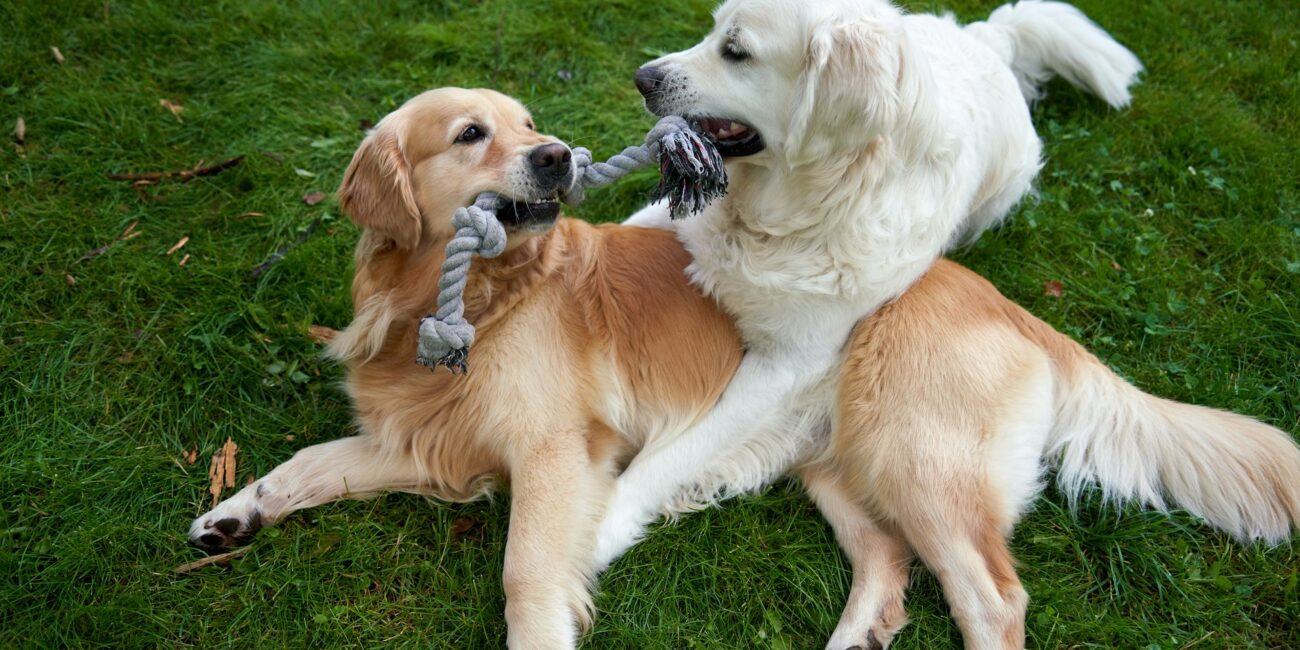Golden Retrievers are one of the most beloved dog breeds around the world. Known for their friendly disposition and joyful demeanor, these dogs thrive on companionship. Their social nature makes them excellent family pets, therapy dogs, and even search and rescue animals.
But what exactly goes into the social life of a Golden Retriever, and how can you ensure they play well with others?
This blog post aims to explore these questions by examining the importance of socialization, the role of parks and play dates, understanding cues, and fostering positive interaction with other dogs and people.
By the end of this post, you’ll have a comprehensive understanding of how to nurture your Golden Retriever’s social skills, ensuring they live a happy and fulfilling life.
Understanding the Need for Socialization
Why Socialization Matters
Socialization is a critical component of a Golden Retriever’s development. It involves exposing your dog to a variety of experiences, environments, and beings, which helps them become well-adjusted adults.
Without proper socialization, a Golden Retriever might develop anxiety, fear, or aggression towards unfamiliar people or dogs. To prevent these issues, it’s essential to start socializing your pup as early as possible.
Introducing them to different sights, sounds, and smells helps build their confidence and comfort levels, ensuring they grow into friendly and adaptable companions.
The Role of Early Exposure
Early exposure to different scenarios is vital for your Golden Retriever’s socialization process. This includes meeting other dogs, playing with children, and encountering various environments like urban and rural settings.
The more experiences your dog has early on, the more comfortable they will be adapting to new situations in the future.
Positive reinforcement techniques, such as treats and praise, can be used to encourage desired behaviors and create a strong bond between you and your dog during this crucial stage of development.
Long-term Benefits of Proper Socialization
Proper socialization not only impacts your dog’s behavior but also enhances their overall well-being. A well-socialized Golden Retriever is more likely to be happy, confident, and balanced, reducing the likelihood of developing behavioral issues.
Furthermore, it can improve your dog’s ability to communicate with other dogs and people, leading to more enjoyable interactions and a higher quality of life.
Ultimately, investing time and effort into your dog’s socialization will yield long-term benefits, creating a harmonious relationship between you and your furry friend.
Exploring Dog Parks and Their Benefits
The Social Hub for Dogs
Parks serve as a social hub for both dogs and their owners. These designated areas provide a safe and controlled environment where dogs can engage in off-leash play, interact with other dogs, and expend energy.
For Golden Retrievers, dog parks offer an invaluable opportunity to practice their social skills and make new friends. Regular visits to the dog park can help your Golden Retriever release pent-up energy, reducing the likelihood of destructive behavior at home.
Enhancing Play Skills
Parks are an ideal setting for your Golden Retriever to enhance their play skills. Engaging in play with other dogs helps them learn important social cues, such as body language and vocalizations, which are essential for effective communication.
Additionally, playing with other dogs allows your Golden Retriever to practice self-control, patience, and adaptability in various situations. By observing and mimicking other dogs’ behaviors, your dog can refine their social skills, leading to more enjoyable interactions.
Safety Tips for Dog Park Visits
While parks offer numerous benefits, it’s essential to prioritize safety during your visits. Before heading to the park, ensure your Golden Retriever is up-to-date on vaccinations and flea treatments.
Once at the park, monitor your dog’s behavior closely, watching for signs of stress or aggression. It’s also crucial to be aware of other dogs’ behaviors and intervene if necessary to prevent conflicts.
By maintaining vigilance and enforcing basic rules, you can ensure a safe and enjoyable experience for both you and your dog at the park.
The Importance of Play Dates
Building Strong Friendships
Play dates are an excellent way for your Golden Retriever to build strong friendships with other dogs. These one-on-one or small group interactions provide a more controlled environment than parks, allowing you to focus on developing specific social skills.
These can help your dog learn trust, cooperation, and empathy, all of which contribute to healthy and lasting friendships. Additionally, these dates can strengthen the bond between you and your dog as you participate in and supervise their interactions.
Tailored Social Experiences
Unlike dog parks, play dates offer the opportunity for tailored social experiences. By choosing playmates that match your dog’s temperament and energy levels, you can create positive interactions that cater to their unique needs.
This personalized approach to socialization enhances your dog’s ability to adapt to different personalities and play styles, further refining their social skills.
These dates also allow you to address any specific behavioral issues your Golden Retriever may have, offering targeted solutions in a controlled setting.
Facilitating Growth Through Play
These dates can facilitate growth for your Golden Retriever by encouraging them to explore new activities and environments. Trying out different games, toys, and settings can stimulate your dog’s curiosity and creativity, promoting cognitive development and problem-solving skills.
Additionally, these dates can help your dog develop resilience by exposing them to manageable challenges and teaching them how to overcome obstacles.
By fostering a growth mindset through play, you can help your Golden Retriever reach their full potential as a well-rounded and socially adept companion.
Decoding Behavioral Cues
Understanding Canine Body Language
Interpreting your Golden Retriever’s body language is crucial for understanding their emotions and intentions. Dogs communicate through a variety of signals, including tail wagging, ear positioning, and facial expressions.
By learning to recognize these cues, you can better anticipate your dog’s needs and ensure their comfort in social situations.
Additionally, understanding canine body language allows you to identify signs of stress, fear, or aggression, enabling you to intervene and address issues before they escalate.
Responding to Vocalizations
In addition to body language, dogs use vocalizations to convey their thoughts and feelings. Barking, whining, growling, and howling are all forms of communication that can provide insight into your dog’s emotional state.
By paying attention to your Golden Retriever’s vocalizations, you can gain a deeper understanding of their needs and preferences, helping you create a more supportive and responsive environment.
Responding appropriately to your dog’s vocal cues fosters trust and strengthens the bond between you and your pet.
Encouraging Positive Interactions
Encouraging positive interactions with other dogs and people is essential for your Golden Retriever’s social development. Rewarding desired behaviors with praise, treats, or playtime reinforces the importance of cooperation, patience, and empathy.
Additionally, providing guidance and support during interactions can help your dog feel more confident and secure, reducing the likelihood of negative behaviors. By prioritizing positive interactions, you can create a safe and enjoyable social environment for your Golden Retriever.
Fostering Interaction with People
Building Confidence Around Humans
Building confidence around humans is a crucial aspect of your Golden Retriever’s socialization process. Introduce your dog to a variety of people, including family members, friends, and strangers, to help them become comfortable in different social settings.
Encourage positive interactions by rewarding your dog for calm, friendly behavior, and gradually increase the complexity of their social experiences as they become more confident.
By fostering a positive attitude towards humans, you can help your Golden Retriever thrive in various environments.
Encouraging Positive Reinforcement
Positive reinforcement is an effective training method for encouraging desirable behaviors in your Golden Retriever. By rewarding your dog for following commands, displaying good manners, and interacting positively with people, you can reinforce the importance of these behaviors.
Consistent use of positive reinforcement helps your dog understand your expectations and develop self-confidence, leading to a more harmonious relationship between you and your pet.
Additionally, positive reinforcement strengthens the bond between you and your Golden Retriever, creating a foundation of trust and mutual respect.
Cultivating Friendliness in Various Settings
Cultivating friendliness in various settings is essential for your Golden Retriever’s social well-being. Expose your dog to a wide range of environments, such as busy streets, quiet parks, and bustling cafés, to help them become adaptable and well-rounded companions.
Encourage your dog to interact with people and other dogs in these settings, reinforcing positive behaviors with praise and rewards.
By fostering a friendly demeanor in diverse situations, you can ensure your Golden Retriever remains a happy and confident member of your family and community.
Conclusion
Golden Retrievers are naturally friendly and sociable dogs, but their potential can only be fully realized through proper interaction. By investing time and effort into their social development, you can create a well-adjusted, confident companion who thrives in various environments.
From parks and play dates to understanding behavioral cues and fostering interactions with people, there are numerous ways to enhance your Golden Retriever’s social skills and overall well-being.
Remember, a well-socialized Golden Retriever is not only a joy to be around but also a testament to your dedication as a responsible pet owner. For additional resources and expert advice, click here to learn more about nurturing your furry friend’s social life.







